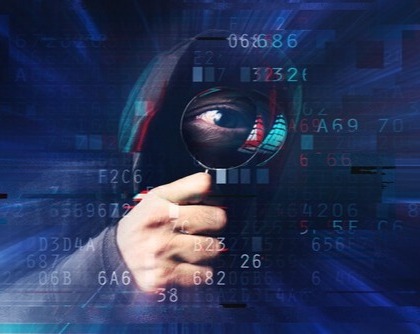This week alone, we've seen a U.S. cyber terrorism advisory about Iran: "Be prepared for cyber disruptions, suspicious emails, and network delays."
And CISA issued an alert on Iran's top 10 methods of hacking and how to mitigate them, with an ominous title: "Potential for Iranian Cyber Response to U.S. Military Strike in Baghdad."
According to analysts, this is good for cybersecurity vendors, and they are coming out bullish on cybersecurity stocks.
The Wall Street Journal had a couple of very telling nuggets in an article today:
"Recent events in Iran and Iraq have put the spotlight on cybersecurity, and we believe it will lead to increased government and private sector spending in both FY20 and FY21," wrote Joel P. Fishbein Jr., software analyst at SunTrust Robinson Humphrey, in a report Monday upgrading FireEye's stock.
And all kinds of cyberattacks are good for the security business:
In a report Monday, Shaul Eyal, an equity research analyst at Oppenheimer & Co., highlighted cybersecurity in the outlook for infrastructure software in 2020.
"Regardless of the overall trajectory of the global economy during 2020, we think some driving factors will persist: cyber criminals will likely threaten and evolve, enterprises will continue to seek lower costs and higher profits and regulatory agencies will continue to monitor and enforce," he wrote.
Cyberattacks likely spiked in the United States during the last week
Since the U.S. killed one of Iran's top leaders last week, there's been more talk about cyberattacks in the media. And more than rising stock prices.
It's likely there's been a spike in the number of cyberattacks against U.S. organizations and governments.
"One of the first things to know, for your enterprise, if there is something happening in your city or state, or an election or military tension between your country and another, there will be malware that is on the rise, I can promise you that, within your space."
That's from data scientist Kenneth Geers who presented at a SecureWorld conference. He spent more than 20 years as an intelligence analyst for the NSA, NCIS, and NATO.
Geers says malware is a reflection of human affairs.
"I usually drop malware detections for countries on timelines and just look at where the spikes are. Was there something like an election or political violence? And there usually is.
In the case of North Korea, I dropped it on a timeline and then there was one huge spike in the middle of the year and literally, it was the day after Donald Trump was at the UN threatening to destroy North Korea.
Then I dug deeper and looked at the most serious types of malware on that map and I put them all together, and one of the things I found is that the single highest day for malware detection in North Korea was the very day that Donald Trump was in South Korea. Those are not coincidences."
What cyber tension with Iran means
To recap, it looks like we've already seen the following impacts as a result of tensions between the United States and Iran.
Talk of cyberattacks is up.
Actual cyberattacks are up.
Cybersecurity stock prices: predicted to go up.




